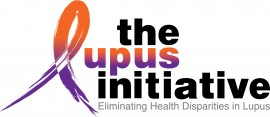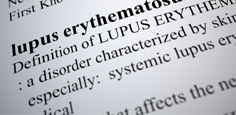The ACR Collaborative Initiatives department (COIN) is honored to be a recipient of the 2018…

ACR receives $335,000 grant from Office of Minority Health to improve lupus health outcomes
The American College of Rheumatology’s (ACR) The Lupus Initiative (TLI) recently announced the award of a one-year, $335,000 grant from the Office of Minority Health (OMH) to continue the expansion of its established, national education program by developing an expert-informed program model intended to improve health outcomes for people with lupus.
This is the seventh year the ACR has been honored to receive this grant from the OMH. In 2015, the ACR used OMH grant funds to develop an expert-informed program model that effectively addressed barriers to diagnosis, treatment, and disease management for minorities impacted by lupus, often due to limited access to lupus educational curricula tools and resources that currently exist among practicing health professionals. The ACR accomplished this by collaborating with a network of agencies and organizations in Southwest Georgia and the Pacific Northwest. “The model allows for primary care providers to treat a person with lupus on their own, or co-manage with a geographically-distant rheumatologist, until an appropriate referral can be made. Additionally, we focus on increasing the awareness of the people in these “silent spaces” about lupus’ signs and symptoms,” said Sheryl McCalla, JD, TLI Project Director and ACR Senior Director, Collaborative Initiatives. This award will support the ACR’s efforts to provide sorely needed education to health providers, as well as specialty care to patients living in rural and underserved areas who are suffering from lupus – a serious, complex chronic autoimmune condition.
“This model is the first of its kind to establish a method to penetrate the most difficult to reach, but most affected populations – communities in rural and micropolitan areas of the U.S. where there is a shortage of rheumatologists,” said Sam Lim, MD, MPH, Associate Professor of Medicine and Epidemiology at Emory University and a nationally recognized lupus expert. “The TLI evidence-based model can be replicated by other organizations, communities, and agencies to deliver provider education and access to care for patients in need.”
The ACR will continue to expand upon its existing infrastructure of partner organizations, resulting in one of the largest, national formal collaborations of lupus stakeholders. The collaborative partners for this current grant include the following stakeholders:
- Emory University School of Medicine
- Southwest Georgia Area Health Education Center
- Cascades East Area Health Education Center
- Let’s Talk Diversity Coalition, Inc.
- St. Charles Rheumatology Clinic
###
Established in 2009, the ACR has received multiple awards from the U.S. Department of Health and Human Services to develop educational resources for medical providers and for persons with lupus and their families and caregivers to assist them in the recognition, diagnosis, treatment, and management of lupus. To date, evaluation results demonstrate the programs have been successful and impactful.
For more information about The Lupus Initiative, visit thelupusinitiative.org or follow TLI on Twitter at twitter.com/lupusinitiative.
Headquartered in Atlanta, Ga., the American College of Rheumatology is an international professional medical society that represents more than 9,000 rheumatologists and rheumatology health professionals. Rheumatologists are internists or pediatricians who are qualified by training and experience in the diagnosis and treatment of arthritis and other diseases of the joints, muscles and bones. Over 50 million Americans — including nearly 300,000 children — suffer from the painful, disabling and sometimes fatal effects of arthritis and rheumatic diseases. The ACR’s mission is to advance rheumatology. Learn more by visiting rheumatology.org follow ACR on Twitter at twitter.com/acrheum.
The ACR’s The Lupus Initiative is a multi-faceted education program of the American College of Rheumatology that provides medical professionals, educators, and students with expert informed programs and easy-to-use educational resources to ensure the early and accurate diagnosis, effective treatment and management of patients with lupus, regardless of age, gender, race, ethnicity or socioeconomic status, so that they may potentially lead healthier lives.
The Lupus Initiative is funded in part by the U.S. Department of Health and Human Services’ Office of Minority Health. The Lupus Initiative is guided by experts in medicine, public health, academia, research, patient advocacy, and health disparities.


